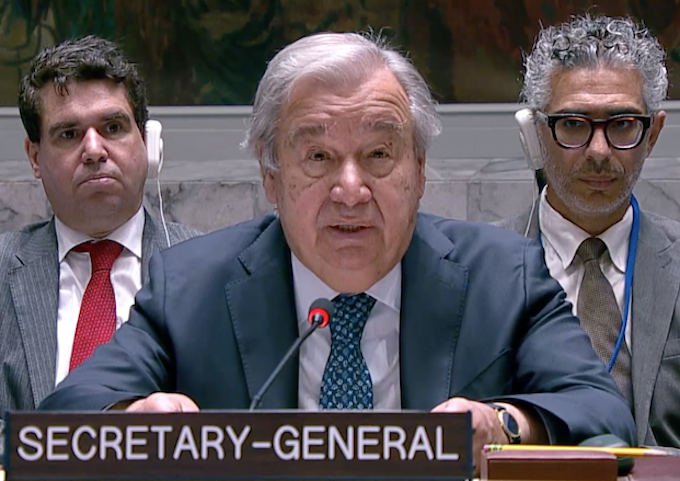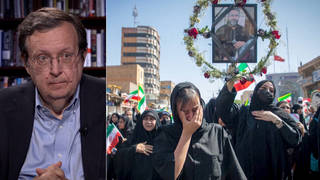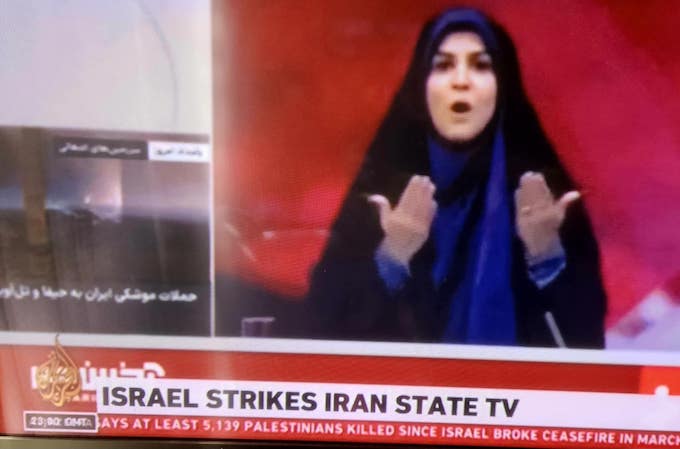Because they deserve it? Because we’re told to? Or because, in truth, we play dirty given the slightest excuse.
Britain and America would like everyone to believe that hostilities with Iran began with the 1979 Islamic Revolution. But you have to go back over 70 years to find the root cause in America’s case, while Iranians have endured more than a century of British exploitation and bullying. The US-UK Axis don’t want this important slice of history resurrected to become part of public discourse. Here’s why.
William Knox D’Arcy, having obtained a 60-year oil concession to three-quarters of Persia and with financial support from Glasgow-based Burmah Oil, eventually found oil in commercial quantities in 1908. The Anglo-Persian Oil Company was formed and in 1911 and completed a pipeline from the oilfield to its new refinery at Abadan.
Just before the outbreak of World War 1 Winston Churchill, then First Lord of the Admiralty, wanted to convert the British fleet from coal. To secure a reliable oil source the British Government took a major shareholding in Anglo-Persian.
In the 1920s and 1930s, the company profited hugely from paying the Persians a miserly 16% and refusing to renegotiate terms. An angry Persia eventually cancelled the D’Arcy agreement and took the matter to the Court of International Justice in The Hague. A new agreement in 1933 provided Anglo-Persian with a fresh 60-year concession but on a smaller area. The terms were slightly improved but still didn’t amount to a square deal.
In 1935 Persia became known internationally by its other name, Iran, and the company was re-named Anglo-Iranian Oil. By 1950 Abadan was the biggest oil refinery in the world and the British government, with its 51% holding, had affectively colonized part of southern Iran.
Iran’s tiny share of the profits had long soured relations and so did the company’s treatment of its oil workers. 6,000 went on strike in 1946 and the dispute was brutally put down with 200 dead or injured. In 1951 while Aramco shared profits with the Saudis on a 50/50 basis Anglo-Iranian handed Iran a miserable 17.5%.
Hardly surprising, then, that Iran wanted economic and political independence. Calls to nationalise its oil could no longer be ignored. In March of that year the Majlis and Senate voted to nationalize Anglo-Iranian, which had controlled Iran’s oil industry since 1913 under terms frankly unfavourable to the host country.
Social reformer Dr Mohammad Mossadeq was named prime minister by a 79 to 12 majority and promptly carried out his government’s wishes, cancelling Anglo-Iranian’s oil concession and expropriating its assets. His explanation was perfectly reasonable:
Our long years of negotiations with foreign countries… have yielded no results thus far. With the oil revenues, we could meet our entire budget and combat poverty, disease, and backwardness among our people.
Another important consideration is that by the elimination of the power of the British company, we would also eliminate corruption and intrigue, by means of which the internal affairs of our country have been influenced…. Iran will have achieved its economic and political independence. (M. Fateh, Panjah Sal-e Naft-e Iran, p. 525)
Britain, determined to bring about regime change, orchestrated a worldwide boycott of Iranian oil, froze Iran’s sterling assets and threatened legal action against anyone purchasing oil produced in the formerly British-controlled refineries. The Iranian economy was soon in ruins… All sounds very familiar, doesn’t it?
Churchill (prime minister at the time) let it be known that Mossadeq was turning communist and pushing Iran into the arms of Russia just when Cold War anxiety was high. That was enough to bring America’s new president, Eisenhower, onboard and plotting with Britain to bring Mossadeq down.
So began a nasty game of provocation, mayhem and deception. Shah Mohammad Reza Pahlavi, in exile, signed two decrees, one dismissing Mossadeq and the other nominating the CIA’s choice, General Fazlollah Zahedi, as prime minister. These decrees were written as dictated by the CIA. The coup by MI6 and the CIA was successful and in August 1953, when it was judged safe for him to do so, the Shah returned to take over.
For his impudence Mossadeq was arrested, tried, and convicted of treason by the Shah’s military court. He was imprisoned for 3 years then put under house arrest until his death. He remarked: “My greatest sin is that I nationalized Iran’s oil industry and discarded the system of political and economic exploitation by the world’s greatest empire… I am well aware that my fate must serve as an example in the future throughout the Middle East in breaking the chains of slavery and servitude to colonial interests.”
His supporters were rounded up, imprisoned, tortured or executed. Zahedi’s new government reached an agreement with foreign oil companies to form a consortium to restore the flow of Iranian oil, awarding the US and Great Britain the lion’s share, with 40% going to Anglo-Iranian.
The consortium agreed to split profits on a 50-50 basis with Iran but refused to open its books to Iranian auditors or allow Iranians to sit on the board.
The US massively funded the Shah’s government, including his army and his hated secret police force, SAVAK. Anglo-Iranian changed its name to British Petroleum in 1954. Mossadeq died in 1967.
Smouldering resentment for more than 70 years
The British-American conspiracy that toppled Mossadeq, reinstated the Shah and let the American oil companies in, was the final straw for the Iranians. It all backfired 25 years later with the Islamic Revolution of 1978-9, the humiliating 444-day hostage crisis in the American embassy and a tragically botched rescue mission.
If Britain and America had played fair and allowed the Iranians to determine their own future instead of using economic terrorism to bring the country to its knees Iran might today be “the only democracy in the Middle East”, a title falsely claimed by Israel which is actually a repulsive ethnocracy. So never mention the M-word MOSSADEQ – the Iranian who dared to break the chains of slavery and servitude to Western colonial interests.
Is Britain incapable of playing fair? During the Iran-Iraq war (1980-88) the US, and eventually Britain, leaned strongly towards Saddam and the alliance enabled Saddam to more easily acquire or develop forbidden chemical and biological weapons. At least 100,000 Iranians fell victim to them.
This is how John King, writing in 2003, summed it up. “The United States used methods both legal and illegal to help build Saddam’s army into the most powerful army in the Mideast outside of Israel. The US supplied chemical and biological agents and technology to Iraq when it knew Iraq was using chemical weapons against the Iranians. The US supplied the materials and technology for these weapons of mass destruction to Iraq at a time when it was known that Saddam was using this technology to kill his Kurdish citizens.
“The United States supplied intelligence and battle planning information to Iraq when those battle plans included the use of cyanide, mustard gas and nerve agents. The United States blocked the UN censure of Iraq’s use of chemical weapons. The United States did not act alone in this effort. The Soviet Union was the largest weapons supplier, but England, France, and Germany were also involved in the shipment of arms and technology.”
The company I worked for at that time supplied the Iranian government with electronic components for military equipment and we were mulling an invitation to set up a factory in Tehran when the UK Government announced it was revoking all export licences to Iran. They had decided to back Saddam. Hundreds of British companies were forced to abandon the Iranians at a critical moment.
Betraying Iran and throwing our weight behind Saddam went well, didn’t it?
Saddam was overthrown in April 2003 following the US/UK-led invasion of Iraq, and hanged in messy circumstances after a dodgy trial in 2006. The dirty work was left to the Provisional Iraqi Government. At the end of the day, we couldn’t even ensure that Saddam was dealt with fairly. “The trial and execution of Saddam Hussein were tragically missed opportunities to demonstrate that justice can be done, even in the case of one of the greatest crooks of our time”, said the UN Human Rights Council’s expert on extrajudicial executions.
Philip Alston, a law professor at New York University, pointed to three major flaws leading to Saddam’s execution. “The first was that his trial was marred by serious irregularities denying him a fair hearing and these have been documented very clearly. Second, the Iraqi Government engaged in an unseemly and evidently politically motivated effort to expedite the execution by denying time for a meaningful appeal and by closing off every avenue to review the punishment. Finally, the humiliating manner in which the execution was carried out clearly violated human rights law.”
In 2022 when Nazanin Zaghari-Ratcliffe, a British-Iranian, was freed after five years in a Tehran prison it transpired that the UK had owed around £400m to the Iranian government arising from the non-delivery of Chieftain battle tanks ordered by the Shah of Iran before his overthrow in 1979. Iran had been pursuing the debt for over four decades. In 2009 an international court in the Netherlands ordered Britain to repay the money. Iranian authorities said Nazanin would be released when the UK did so, but she suffered those years of incarceration, missing her children and husband in the UK, while the British government took its own sweet time before finally paying up.
Now we’re playing dirty yet again, supporting an undemocratic state, Israel, which is run by genocidal maniacs and has for 77 years defied international law and waged a war of massacre, terror and dispossession against the native Palestinians. And we’re even protecting it in its lethal quarrel with Iran.
It took President Truman only 11 minutes to accept and extend full diplomatic relations to Israel when the Zionist entity declared statehood in 1948 despite the fact that it was still committing massacres and other terrorist atrocities. Israel’s evil ambitions and horrendous tactics were well known and documented right from the start but eagerly backed and facilitated by the US and UK. In the UK’s case betrayal of the Palestinians began in 1915 thanks to Zionist influence. Even Edwin Montagu, the only Jew in the British Cabinet at that time, described Zionism as “a mischievous political creed, untenable by any patriotic citizen of the United Kingdom”.
Sadly, the Zionist regime’s unspeakable cruelty and inhumanity against unarmed women and children in Gaza and the West Bank — bad enough in the decades before October 2023 but now showing the Israelis as the repulsive criminals they’ve always been — still isn’t enough to end US-UK adoration and support. UK prime minister Starmer much prefers to talk about “the malign influence of Iran”
The excuse this time is that Iran’s nuclear programme might be about to produce weapons-grade material which is bad news for Israel. There’s a blanket ‘hush’ over Israel’s 200 (or is it 400?) nukes. The US and UK and allies think it’s OK for mad-dog Israel to have nuclear weapons but not Iran which has to live under this horrific Israeli threat. Then there’s America’s QME doctrine which guarantees Israel a ‘Qualitative Military Edge’ over its Middle East neighbours.
Then consider that Israel is the only state in the region not to have signed the Nuclear Non-Proliferation Treaty. It hasn’t signed the Biological and Toxin Weapons Convention either. It has signed but not ratified the Comprehensive Nuclear Test-Ban Treaty, similarly the Chemical Weapons Convention. Yes, it’s quite evident that the Zionist entity, not Iran, is the ultimate “malign influence” in the Middle East.
The post Why Do We Hate Iran? first appeared on Dissident Voice.This post was originally published on Dissident Voice.






